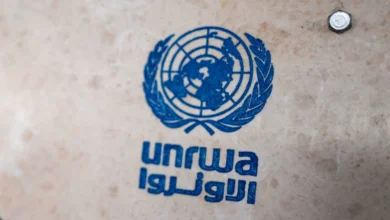In the final review of Egypt’s human rights record at the UN Human Rights Council in Geneva on 11 June, Egypt accepted most recommendations made during the council’s Universal Periodical Review.
The final review took place in the presence of states and NGO representatives. The Egyptian government has endorsed 134 of the Universal Periodic Review’s recommendations, while rejecting four of them.
One of the rejected recommendations pertain to calling for Egypt to join the Optional Protocol of the United Nations Convention against Torture and Other Cruel, Inhuman or Degrading Treatment or Punishment, which was adopted by the UN General Assembly in 2002 and provides for the establishment of a system of regular visits undertaken by independent international and national bodies to places where people are deprived of their liberty, in order to prevent torture and other degrading punishment.
The other recommendation rejected by the Egyptian government is about joining the UN mechanism for accepting individual complaints pertaining to human rights abuses.
Hossam Bahgat, director of the Egyptian Initiative for Personal Rights told al-Masry al-Youm in a telephone conversation from Geneva that an important development happened during the review, despite the rejected recommendations. According to him, Egyptian Minister of Legal and Parliamentary Councils Mofeed Shehab announced that Egypt would establish an institutional mechanism to follow upon the recommendations that it committed itself to fulfill. The mechanism will include representatives of the Egyptian government, the National Council for Human Rights, and civil society organizations. However, Bahgat explained that Shehab didn’t indicate when this mechanism will be established, its mandate, and its composition. He added that independent human rights NGOs would monitor its activities whether they are part of it or not. The UN will have no say on this mechanism and the only obligation to the Egyptian government is that it wil have to submit a new report to the review meeting to be held in four years.
Bahgat said that the government has actually met with several human rights NGOs ahead of the Geneva review to discuss the report in September, February, April and June. He described government officials in conversation with civil society as relatively “responsive”.
Amongst accepted recommendations, Egypt has agreed to remove all forms of discrimination against non-Muslim communities building their worship places, grant the Bahais full citizenship rights, and revisit the articles identifying torture in the penal code. Shehab also mentioned before the Council that Egypt has finalized drafting a law against sexual harassment and has set investigative committees to look into cases infringing on freedom of expression. He added that detained bloggers who were mentioned during the last review committed actual crimes and were not simply arrested for expressing their opinions. He said that the government is ready to terminate the Emergency Law as soon as the Anti-Terror act is adopted.
Interventions by international human rights organizations such as Amnesty International focused on political detentions of members of the Muslim Brotherhood and bloggers, referring to the cases of Mossad Abul Fagr and Kareem Amer, both subjects of prison sentences for their online activities. Other interventions came from representatives of the Arab Network for Human Rights Information, EIPR, the Center for Trade Unions and Worker Services and al-Andalus Institute for Tolerance and Anti-Violence Studies.
During the final comments made by other states, Britain called for the ratification of the convention against torture and for fair and transparent elections. Meanwhile, Saudi Arabia and Algeria were supportive of Egypt’s human rights record in their interventions.
The review is a UN mechanism established in 2006 to assess countries’ human rights’ records through recommendations of civil society and other countries. A first hearing session for Egypt was held on 17 February. On the 11 June session, Egypt’s statesmen presented their case in 20 minutes, followed by 20 minutes dedicated to human rights and civil society organizations. The remaining session of the time is allocated to other states’ representatives’ interventions.




